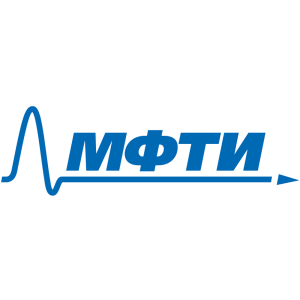Highly Substrate‐Selective Macrocyclic Ring Closing Metathesis
Тип публикации: Journal Article
Дата публикации: 2022-03-02
scimago Q1
wos Q1
БС1
SJR: 0.930
CiteScore: 8.0
Impact factor: 4.0
ISSN: 16154150, 16154169
General Chemistry
Краткое описание
A selective ring-closing metathesis (RCM) reaction for the formation of large macrocycles by using latent sulfur chelated ruthenium iodide benzylidenes, readily activated by thermal and photochemical (UV-A and visible light) stimuli, is reported. For dienes having one terminal alkene and one internal double bond, the specific affinity of diiodo ruthenium alkylidenes for the unhindered terminus, combined with their reluctance to react with internal olefins, favors RCM over oligomerization, providing high macrocyclic yields even at relatively high concentrations. Alternatively, for substrates containing two internal double bonds, a sacrificial methylene donor can be used to obtain the desired products. With this methodology, lactones, lactams, and macrocyclic ketones ranging from 13- to 22-membered rings could be synthesized in moderate to high yields. In addition, synthetic applications for a one-pot cyclization/reduction sequence to produce Exaltolide, a natural macrolide (commercial musk), Dihydrocivetone, and other saturated macrocycles have been explored. Thus, we disclose herein an important advantage for diiodo ruthenium benzylidene catalysts over their less selective dichloro counterparts and provide a more profound understanding of the mechanisms that provide the enhanced cyclization outcome.
Найдено
Ничего не найдено, попробуйте изменить настройки фильтра.
Найдено
Ничего не найдено, попробуйте изменить настройки фильтра.
Топ-30
Журналы
|
1
2
3
|
|
|
Organometallics
3 публикации, 15%
|
|
|
Green Chemistry
2 публикации, 10%
|
|
|
ChemCatChem
1 публикация, 5%
|
|
|
Molecules
1 публикация, 5%
|
|
|
Journal of Physical Chemistry A
1 публикация, 5%
|
|
|
Catalysts
1 публикация, 5%
|
|
|
Organic Chemistry Frontiers
1 публикация, 5%
|
|
|
Journal of Inorganic Biochemistry
1 публикация, 5%
|
|
|
Nature Communications
1 публикация, 5%
|
|
|
Angewandte Chemie
1 публикация, 5%
|
|
|
Angewandte Chemie - International Edition
1 публикация, 5%
|
|
|
Asian Journal of Organic Chemistry
1 публикация, 5%
|
|
|
International Journal of Molecular Sciences
1 публикация, 5%
|
|
|
Tetrahedron
1 публикация, 5%
|
|
|
Russian Chemical Reviews
1 публикация, 5%
|
|
|
Synthesis
1 публикация, 5%
|
|
|
Inorganic Chemistry
1 публикация, 5%
|
|
|
1
2
3
|
Издатели
|
1
2
3
4
5
|
|
|
American Chemical Society (ACS)
5 публикаций, 25%
|
|
|
Wiley
4 публикации, 20%
|
|
|
Royal Society of Chemistry (RSC)
3 публикации, 15%
|
|
|
MDPI
3 публикации, 15%
|
|
|
Elsevier
2 публикации, 10%
|
|
|
Springer Nature
1 публикация, 5%
|
|
|
Autonomous Non-profit Organization Editorial Board of the journal Uspekhi Khimii
1 публикация, 5%
|
|
|
Georg Thieme Verlag KG
1 публикация, 5%
|
|
|
1
2
3
4
5
|
- Мы не учитываем публикации, у которых нет DOI.
- Статистика публикаций обновляется еженедельно.
Вы ученый?
Создайте профиль, чтобы получать персональные рекомендации коллег, конференций и новых статей.
Метрики
20
Всего цитирований:
20
Цитирований c 2024:
12
(60%)
Цитировать
ГОСТ |
RIS |
BibTex |
MLA
Цитировать
ГОСТ
Скопировать
Phatake R. S. et al. Highly Substrate‐Selective Macrocyclic Ring Closing Metathesis // Advanced Synthesis and Catalysis. 2022. Vol. 364. No. 8. pp. 1465-1472.
ГОСТ со всеми авторами (до 50)
Скопировать
Phatake R. S., Nechmad N. B., Reany O., Lemcoff N. G. Highly Substrate‐Selective Macrocyclic Ring Closing Metathesis // Advanced Synthesis and Catalysis. 2022. Vol. 364. No. 8. pp. 1465-1472.
Цитировать
RIS
Скопировать
TY - JOUR
DO - 10.1002/adsc.202101515
UR - https://doi.org/10.1002/adsc.202101515
TI - Highly Substrate‐Selective Macrocyclic Ring Closing Metathesis
T2 - Advanced Synthesis and Catalysis
AU - Phatake, Ravindra S
AU - Nechmad, Noy B
AU - Reany, O.
AU - Lemcoff, N Gabriel
PY - 2022
DA - 2022/03/02
PB - Wiley
SP - 1465-1472
IS - 8
VL - 364
SN - 1615-4150
SN - 1615-4169
ER -
Цитировать
BibTex (до 50 авторов)
Скопировать
@article{2022_Phatake,
author = {Ravindra S Phatake and Noy B Nechmad and O. Reany and N Gabriel Lemcoff},
title = {Highly Substrate‐Selective Macrocyclic Ring Closing Metathesis},
journal = {Advanced Synthesis and Catalysis},
year = {2022},
volume = {364},
publisher = {Wiley},
month = {mar},
url = {https://doi.org/10.1002/adsc.202101515},
number = {8},
pages = {1465--1472},
doi = {10.1002/adsc.202101515}
}
Цитировать
MLA
Скопировать
Phatake, Ravindra S., et al. “Highly Substrate‐Selective Macrocyclic Ring Closing Metathesis.” Advanced Synthesis and Catalysis, vol. 364, no. 8, Mar. 2022, pp. 1465-1472. https://doi.org/10.1002/adsc.202101515.
















